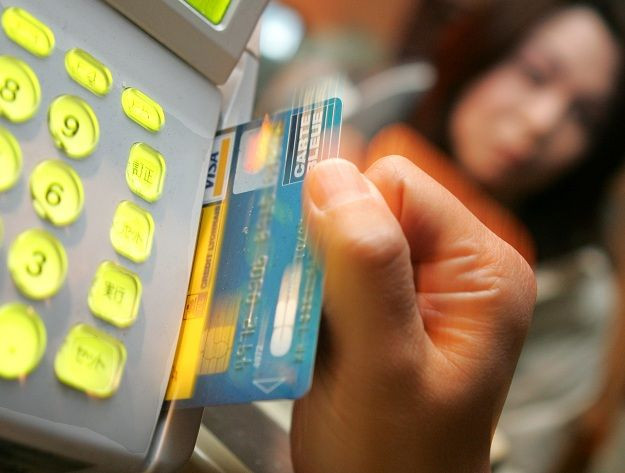New Credit Card Transaction Fees: List Of States Charging 4% Surcharge ‘Checkout’ Fee

Credit card users in some states may have noticed a new fee on transactions when they swipe their cards thanks to new “checkout” surcharge fees.
According to CNN Money, the new 4 percent “checkout” fee rolled out on Sunday in 40 states in the U.S. after a $7.25 billion settlement between credit card issuers and merchants.
The settlement, announced back in July, happened when Visa, MasterCard and nine other major banks settled to fix credit card processing fees with merchants. Part of the agreement noted that credit card issuers would reduce the fees paid by merchants when credit cards are used, but only until eight months after the settlement was reached.
Now, that window of time has come and gone, and, as a result, merchants and retailers now have the option to charge customers who use credit cards. Beginning on Sunday, some merchants began charging between 1.5 percent and 4 percent of the total purchase price on all transactions to cover processing costs to credit card companies.
“This allows merchants, if they choose to, to impose their own surcharge -- an additional surcharge the merchants asked for and will be allowed to charge -- as part of this $7 billion settlement,” South Dakota Bankers Association President Dave Everson said.
However, in the settlement, merchants and retailers have the option to charge or not to charge the tax on its customers. Some retailers and merchants have lambasted the agreement, saying it puts the “wrongdoings of credit card issuers” on the consumer, according to CNN. Some retailers, like Walmart, Macy’s, JCPenney, the Limited Brands and more, joined a petition with the National Retail Federation, claiming the new tax threatens merchants’ priority to keep prices low for customers.
"We have discussed the settlement with many, many merchants, and not a single merchant we have spoken to plans to surcharge," Craig Shearman, spokesman for the National Retail Federation (NRF), said in a statement. "The bottom line is that very few retailers would be able to surcharge under the settlement, and that the vast majority don't want to surcharge even if they could."
Still, retailers have the dilemma in choosing whether to take the burden upon themselves or charge customers the new tax.
Worse yet, others are afraid retailers will begin to charge consumers twice for the fee, since typically merchants build in costs into their regular pricing.
“It’s predictable what’s going to happen,” Edgar Dworsky, founder of ConsumerWorld.org, told NBC News. “We’re at the top of the hill and we’re going to start going down that slippery slope.”
For concerned consumers, it should be noted that the new surcharge fee does not apply to purchases made using debit cards.
Also, it is illegal to charge the fee in 10 states: California, Colorado, Connecticut, Florida, Kansas, Maine, Massachusetts, New York, Oklahoma and Texas. The remaining 40 states will charge the new “checkout” fee.
National retailers including Walmart, Target and McDonald’s vowed not to pass on the tax to customers in any states. By law, though, retailers charging the fees, both online and in brick and mortar stores, will be obligated to post signs informing customers of the new tax.
Below is a list of states that will charge the new “checkout” fee for credit card transactions.
1. Alabama
2. Alaska
3. Arizona
4. Arkansas
5. Delaware
6. Georgia
7. Hawaii
8. Idaho
9. Illinois
10. Indiana
11. Iowa
12. Kentucky
13. Louisiana
14. Maryland
15. Michigan
16. Minnesota
17. Mississippi
18. Missouri
19. Montana
20. Nebraska
21. Nevada
22. New Hampshire
23. New Jersey
24. New Mexico
25. North Carolina
26. North Dakota
27. Ohio
28. Oregon
29. Pennsylvania
30. Rhode Island
31. South Carolina
32. South Dakota
33. Tennessee
34. Utah
35. Vermont
36. Virginia
37. Washington
38. West Virginia
39. Wisconsin
40. Wyoming
© Copyright IBTimes 2025. All rights reserved.






















